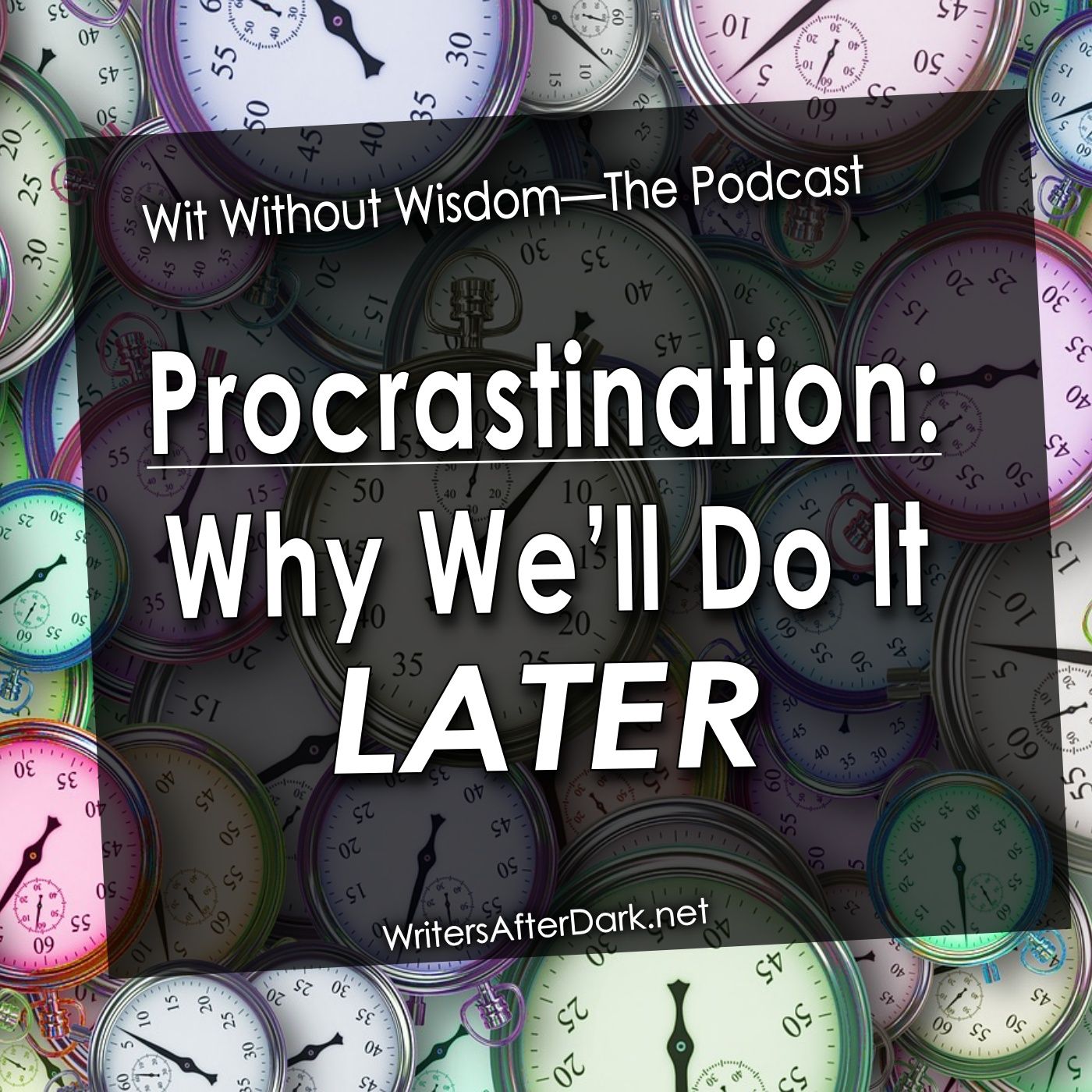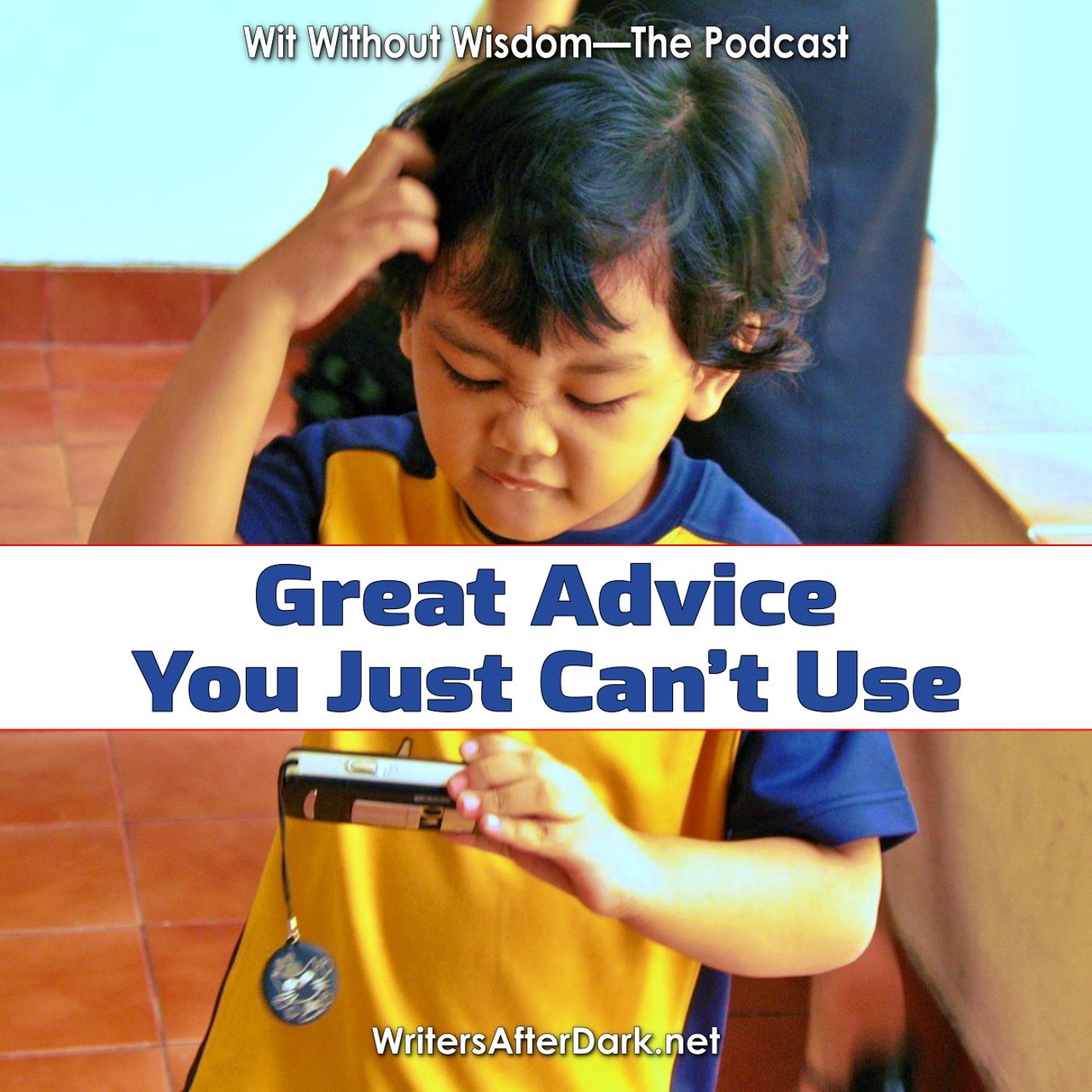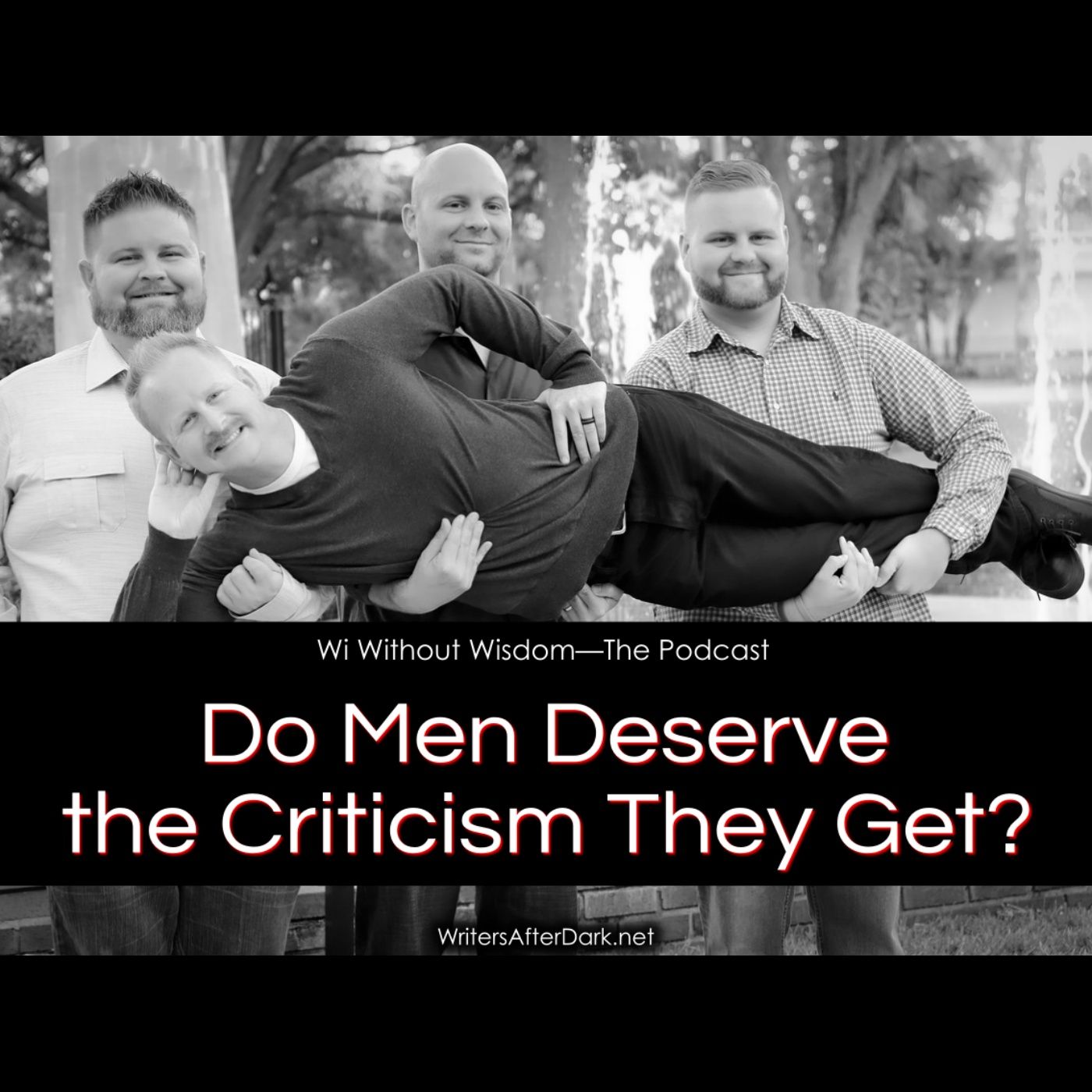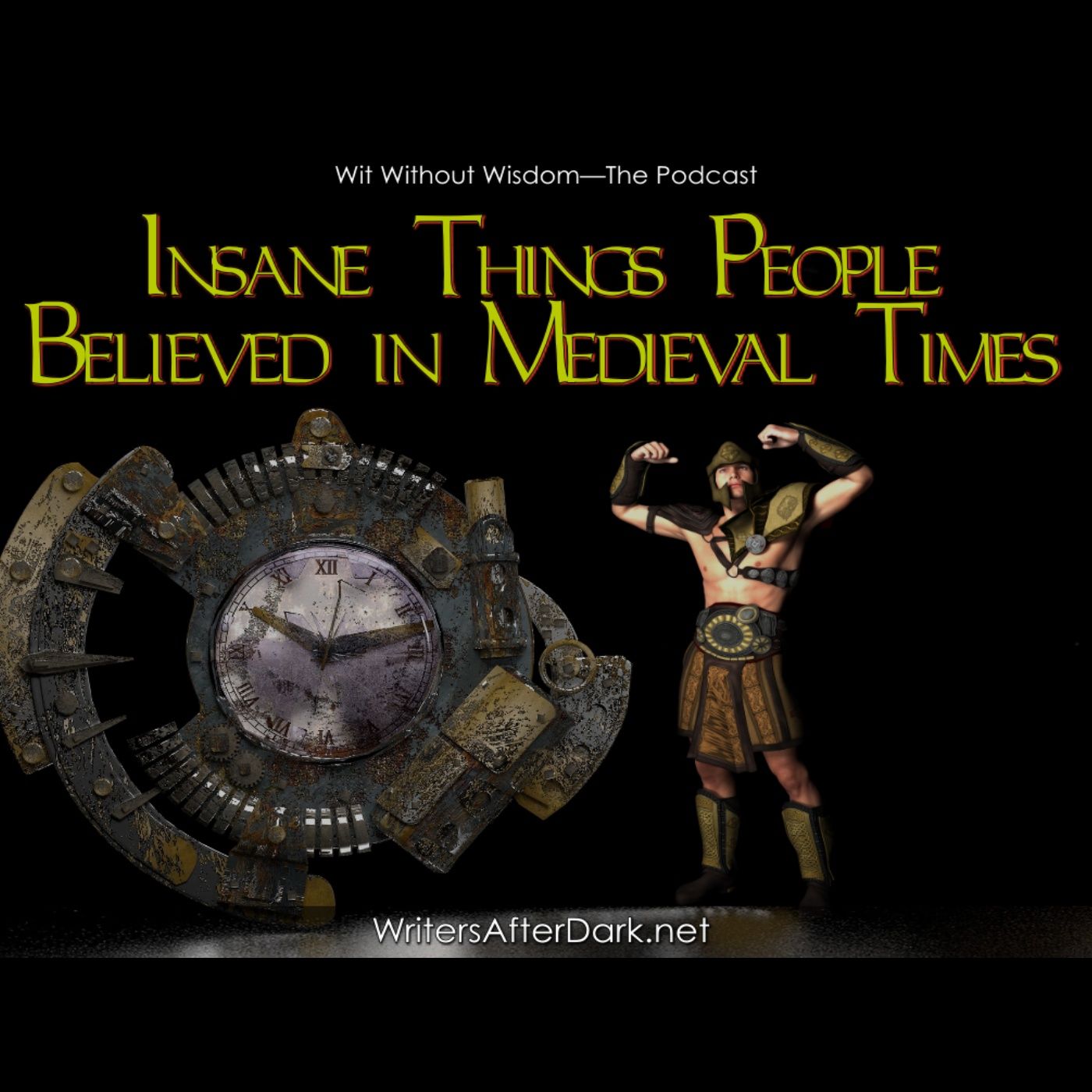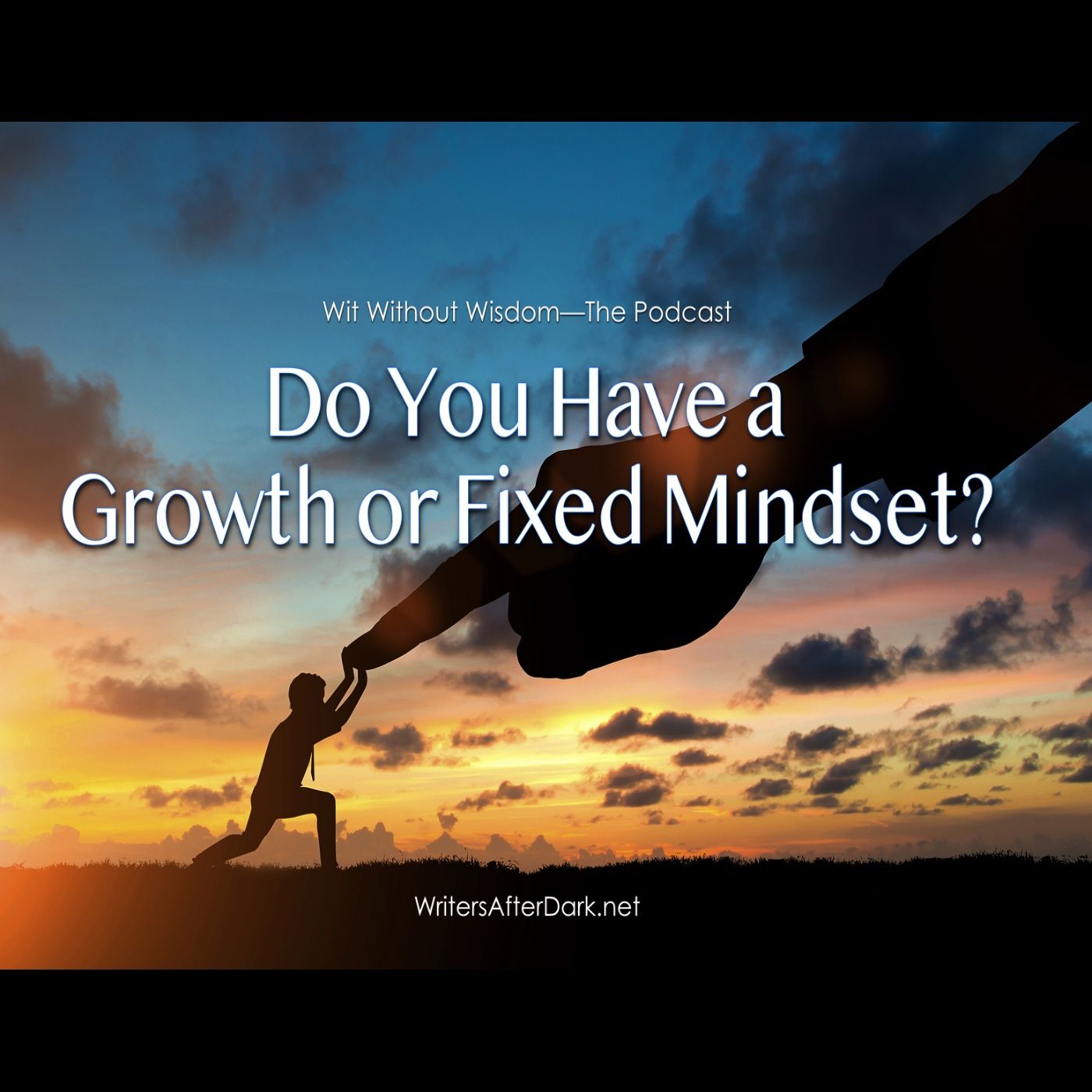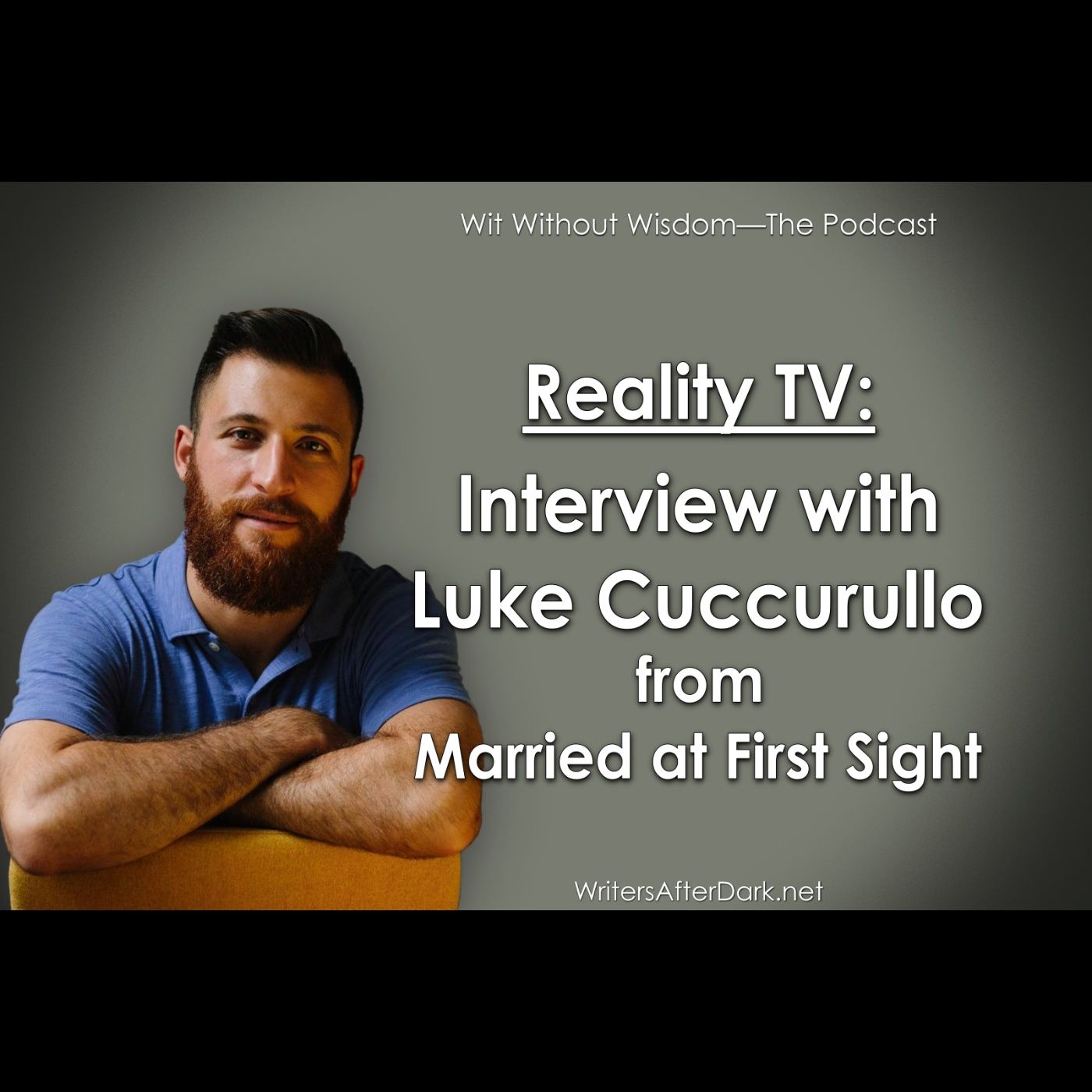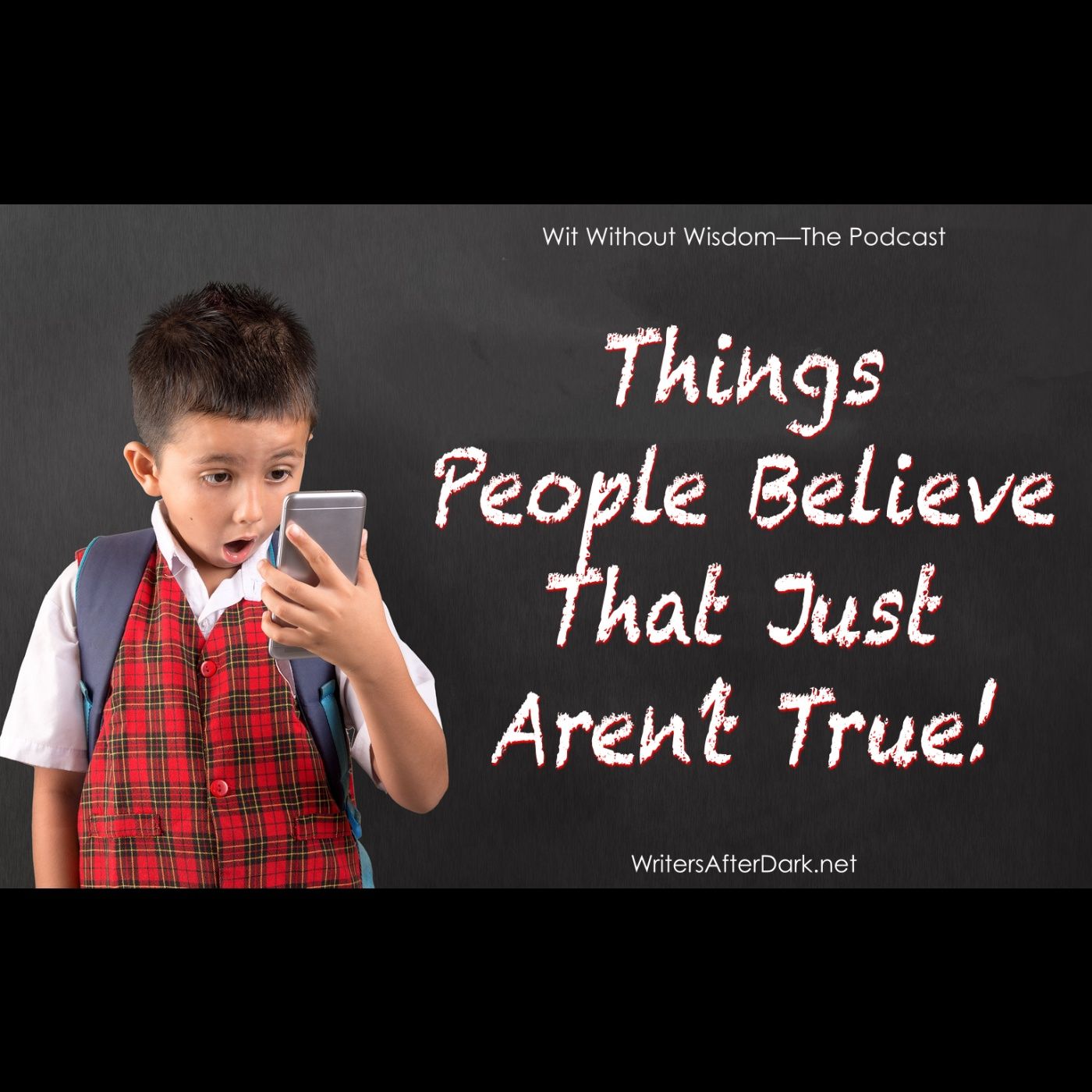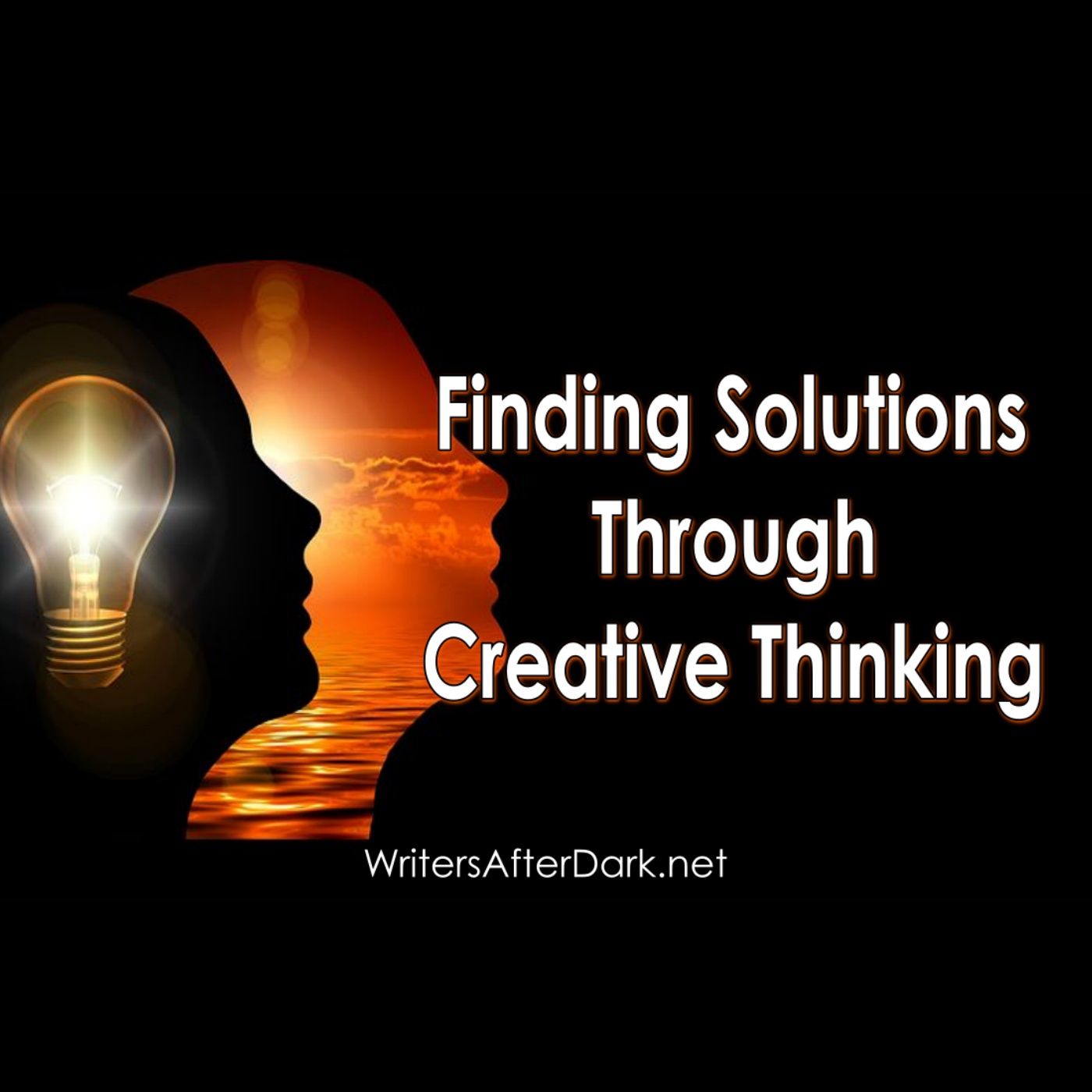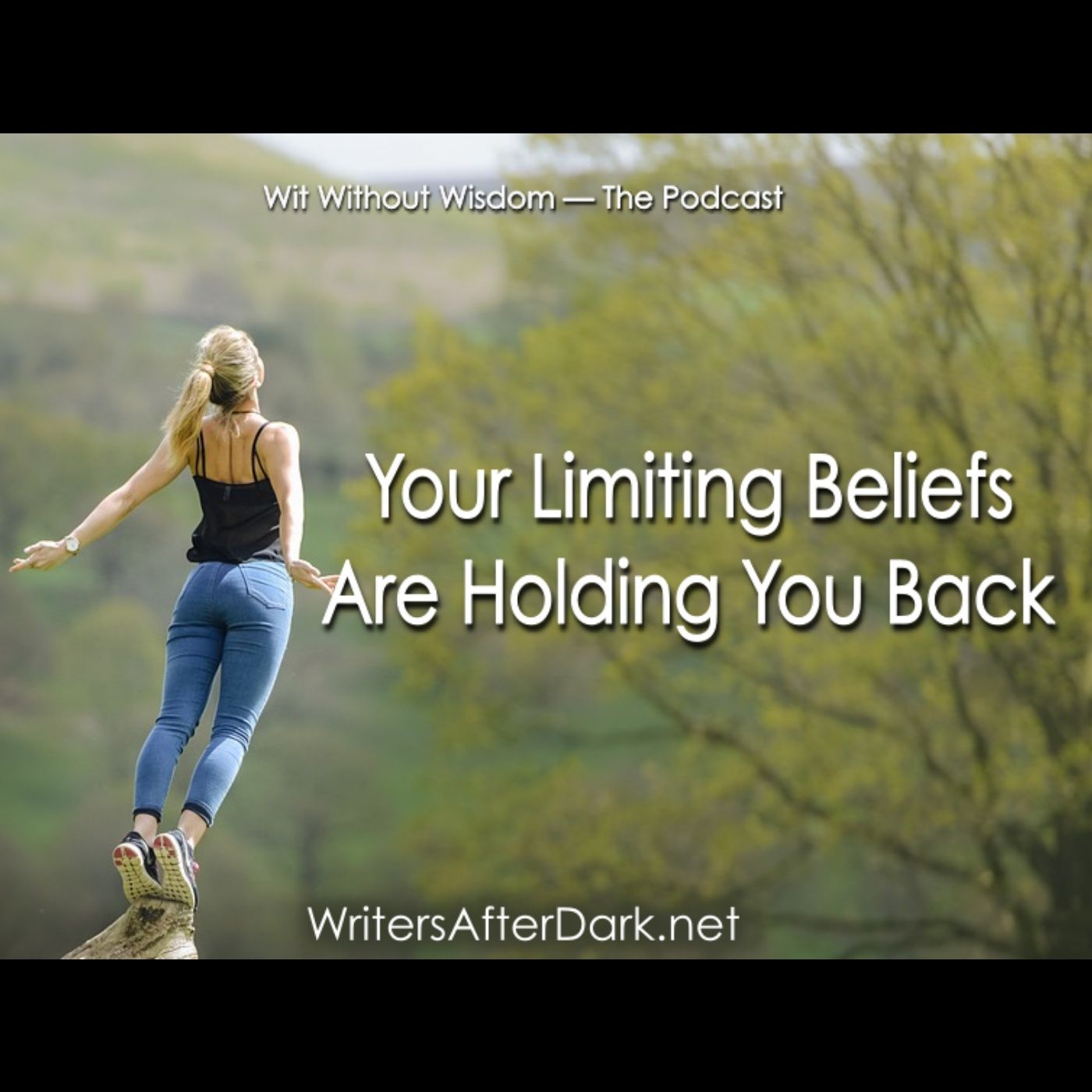Discover Wit Without Wisdom
Wit Without Wisdom

 Wit Without Wisdom
Wit Without Wisdom
Author: Writers After Dark
Subscribed: 0Played: 699Subscribe
Share
© Copyright Writers After Dark
Description
Exploring the artful confusion of being human as seen through the eyes of storytellers. In each episode, we bring you snarky discussions of today's hottest life hacks, studies, and advice—as found on the internet and your neighbor's social media feed.
47 Episodes
Reverse
Horror movies are a lot like roller coasters. Some people love them, and other people don’t. The one thing we can all agree on, however, is that horror movie characters are just kind of dumb. Other than the films’ sole survivor, almost always a female, the rest of the characters make deadly errors we, the audience, are certain that we would not make.Except, if you were actually in a horror movie, you’re not going to be as smart as you think.In this episode, we combine science with our particular brand of snark to demonstrate exactly why that is true.And to get there we’re covering:•Why horror films act as a stress reliever.•Why the stress reliever function is also the thing that gets you killed.•The science behind all the stupid clown-shit you’ll be doing in a horror film.•How programed optimism bias will leave you totally unprepared.Plus, a lot more. So, grab your trick or treat bag, think like the Final Girl, and join us to find out if you’re smarter than the average horror movie character.
We’re all afraid of something. Fear is, after all, a core emotion in the human experience. Some of the things we fear are big, dangerous, or important. And some of the things that frighten us can be rather small and inconsequential . . . To others, at least.In this episode, in honor of the Halloween season, we examine fear and phobias. From the rational to the irrational, and from the terror of phobias, to the joyful exhilaration of scary fun.In fear and phobias, we discuss:* The biological and psychological source of fear* Why we enjoy some scary things but not others* How phobias differ from fears* And shared experience of the most common fears and phobiasSo unless you suffer from phobophobia, which is the fear of phobias, grab your pumpkin, and have a listen as we bring you the first in our 5 week Halloween podcast special.
As natural as socializing is for humans, often interactions with strangers and new acquaintances isn’t the easiest thing to master. And, let’s face it, we live in a world where we have to be extra cautious not to offend. It’s helpful to have some social life, life hacks to help improve interactions, and create better and more positive communications. In this episode, we’re sharing some time-proven techniques to: •Improve likeability•Make a better connection with another•Know when someone is disinterested•Demonstrate greater positivity Plus, we’re throwing in a few of the darker Jedi mind tricks to assist in getting more information and getting more favors.
One in four Americans believes in astrology, which is a little more than half of the number who believe in UFOs. But even if we’re not true believer knowing the things written in the stars about you is fun, entertaining, and can often be alarmingly insightful. After all, what harm is there in recognizing the potentially best aspects of our personalities? In this episode, for believers, non-believers, and those who want to laugh at themselves, we’re making personality predictions based on your Zodiac signs. We’ve got a rundown for all the signs on: •Your ideal job•The one word that best describes you•How you rank in the bedroom Plus, a bunch of Top Three signs list for things like romance, the life of the party, and loyalty. And so much more that we just could list it all here. So, if you’d like to adventure toward a little star-sign introspection, or just laugh a bit, then join us as we examine the Zodiac signs and their best and worst qualities.
Well, we put off the episode on procrastination for as long as we could. After all, of all the demons we face, the ugliest is the one who keeps records on everything we haven’t yet completed. If there is a person in the world who never procrastinates, they are probably an intolerable sort who silently judges the rest of us with their sanctimonious looks.Okay, that may be a little harsh. If you are the type of person who gets everything done, when it needs to be done, and well in advance of the deadline. Congratulations! This episode is not for you. For the rest of us, this episode dives deep (well twenty-four minutes deep) into the prevailing opinions and research on the causes of procrastination.In the episode we discuss:•The harmful health aspects of procrastinating•Why the traditional model and definition doesn’t really cover it all•The emotional causes for not getting things done•How personality may drive your procrastination style•And, possible genetic and biological factors that may be indicators of who procrastinates mostSo, go ahead and put us on your to-do list, sit back, relax, and let us provide all the reasons you need to rationalize why you still haven’t cleaned up your closet.
In this episode, we explore some of the most common and yet least usable advice that is out on the internet. Advice today is like opinions—everyone has some. It truly is a great thing to be able to read so much information on ways to improve everything from your productivity to your peace of mind, to your finances. And although the advice is well intended and may even be helpful, a lot of what you read just isn’t usable. So, we’re diving into some of the top categories and discussing why this stuff won’t work and providing some simple alternatives that may work better.
Alcohol is that amazing substance that has been the source of the most memorable nights and those best forgotten. It’s incredible the feats we can perform with a little inhibition reducing poison. And whether you’re the occasional drinker or a black-out drunk partier, we’ve got some life-changing alcohol facts (that won’t actually change your life).Now, as you know, here at Wit Without Wisdom, we are all about the “show don’t tell” when it comes to facts. So, as a special treat, while the show is one sequential episode, we recorded it in five-minute intervals with twenty-five-minute recording breaks. What did we do with those breaks? Why we drank, of course. And we did it all, so you the listener can see the life-changing effects of alcohol and answer that age-old question – Do I Sound Drunk?Plus, we’ll share:• Which countries are the top drinkers?• Can you find a bar in space?• What eye color means to your drinking tolerance?• Why drinking can cause “performance” issues.• And what are some of the most unique beverages in the world?That and a whole lot more. So, grab your favorite beverage and join us as we create one of the year’s worst hangovers.
In an age where we must be cautious as to what we say, for one group it is open season for criticism and attacks. That group is Men. The reason is that today’s narrative is the belief that the male species has enjoyed centuries of unfettered privilege and consequently deserve all the criticism they receive. But is that true?In this episode, we explore the topic of men and all their faults. But rather than settling on a blanket agreement that men are the source of all evil, or promoting the idea that all men are the same, we delve into the societal and biological reasons for why men behave the way they often do.We discuss:* The often overlooked truth about how far privilege extends* The cost of that privilege in terms of real statistics on mortality* How biological factors play a role in men’s behavior* How both society and women reinforce the behaviors we claim we’d like extinguishedLending our own opinions on the topic, we draw the lines on what men need to take responsibility for and what things will require changes by everyone
The Medieval Age, those 1000 years of technological and intellectual darkness when superstition was the source of humankind’s explanation of the world. Looking back today, many of the insane things people believed in medieval times seem funny. But in that age of faith, evil spirits, demons, and crazy remedies were wholeheartedly embraced.In this episode, we take a tour of the fantastical medieval beliefs, including:* Burial practices* Common medical cures* The botanical value of virgins* How to summon the devil * The curse of Brussels sprouts Plus a whole bunch more of crazy beliefs and remedies. So take a break from living your own modern myth as shine a line of the crazy beliefs from the medieval period.
Hey, if you’re living life correctly, you’re gonna feel a little dirty once in a while. But setting aside your inherent naughtiness, the idea of cleaning our insides has become a focus of better health advocates. And as the words suggest, diet processes promoting detox and cleanses have enjoyed great popularity over the past decade. The questions remain, however, as to whether these proposed solutions do what they say they do.In this episode, we purge ourselves of the temptations offered by dietary magic bullets and dive into the topic of cleansing and detoxifying. We discuss:• The difference between a detox and a cleanse• Both popular and extreme diets• The pros and cons of detoxing and cleansing• Whether you actually need focused efforts to “clean” your body• And natural, less severe, methods to reduce internal toxinsSo, before you get that summer bod prepped through a full-body purge, grab some lemon water and have a listen to this week’s Detox and Cleanse episode.
Language is a fantastic tool for expressing our ideas, describing our world, and communicating our intentions. The English language is far from static as we add thousands of new words each year. Many of those new words get their start as slang. And in this episode, we take you on a journey through some of the most interesting slang of today and yesteryear.For any wordsmith, parent, or modern communicator, slang has some fascinating power. It not only explains new things and old things in new ways, but slang also provides insight into the latest generation’s focus and attention. In this episode we:• Explore slang from the 80s, 90s, and 00s.• Discuss slang terms that use older slang terms as their definition• Highlight the most resilient words• And bring you up to speed on the latest “words on the street.”No need to bring your urban dictionary, as we’ve got you covered on all the definitions. And you might also be able to help us out on some of the terms we discuss, but still, just don’t get.
In the age of personal improvement and self-betterment, it’s no surprise that a lot of research is devoted to understanding all the mental components that separate those who succeed from those who struggle. One possible answer may be that some people have what researcher Carol Dweck calls a Growth Mindset while others have a Fixed Mindset.In this episode, we explore the Growth versus Fixed mindset theory and share some practices to both determine which you are and how to improve your growth mindset while avoiding some of the pitfalls of both types.We’ll discuss:• The differences between growth and fixed mindsets• Why it may be beneficial to have a little of both types of approach• 7 questions to help you determine which type you are• 3 Signs that your growth mindset is creating procrastination• The potential dangers of misunderstanding what the Growth Mindset Theory is claiming• 20 ways to train your brain for growthAnd believe it or not . . . There is even more. We just tired of writing bullet points.So, open your mind, draw up some introspection, and find out how a growth mindset can make you even more marvelous than you already are!
Most of us spend at least a little time each week trying to improve ourselves. Higher productivity, getting in better shape, being happier and obsessing over our bullet journal are just a few of the things that may be on your list. The struggle is real and so is trying to create the better you among all of life’s other requirements. But it doesn’t all have to be difficult which is why we’ve compiled a list of ten easy things you can do for yourself with just a little time each day.If you want to move forward, but also need a saner, more manageable plan or at least a short self-improvement list, this is your episode.Plus, eight out of ten items on our list will take less than ten minutes of your time, and the longest commitment we’ve included is getting a good night’s sleep.Delivered with our usual snark (because sarcasm is good for the soul) here is an easy fifteen-minute episode that will make you feel 17% better just by listening to it!
If you watch Lifetime Channel’s Married at First Sight, then you’re no stranger to one of the show’s most controversial participants, Luke Cuccurullo. On this episode of Wit Without Wisdom, we’ve got an interview with Luke and some breaking news on where he is today and who has his romantic interest. Lifetime channel’s reality television show Married at First Sight draws over a million viewers each week. What could be more intriguing than watching two people meet for the first time at the altar and then following the newlyweds through their first eight weeks of marriage? True Love or Train Wreck? Well, the show delivers a little of both. Okay, actually it offers more train wrecks than true love, but that is why it is so damn entertaining. In this episode show participant, Luke Cuccurullo answers social media and viewers biggest questions including: * Why he decided to marry a woman he never met* Was he gaslighting his bride Kate?* Why he came off as the “Bad Guy” on the show* What is Luke’s actual sexual preference* Was he cheating on his new bride with a mystery woman and who was she? So, if you love the show, are on Team Luke or Team Kate, or just want insights on what it’s like to marry someone at first sight, then tune in to this week’s episode.If you’d like to follow Luke and his shenanigans, you can find him on Instagram: @lukecukes.And if you’d like to discuss the show with like-minded individuals, we invite you to join the discussion on Reddit: MAFS_TV, go ahead and hit subscribe, you won’t be disappointed!
Congratulations you are probably living a lie. Well, not a complete lie but there are still plenty of things people believe that just aren’t true. We’re not talking about really big or important things. In fact, most of the myths we’re debunking in this episode don’t rise to the level of conspiracy or political outrage.Still, it was terrific to discover over fifty things a large number of people believe that just aren’t true. And perhaps more interesting is the ways and reasons why these pervasive untruths continue to prosper.And while we get a little snarky on some of the myths, your humble hosts are not jumping on the soapbox as there were several falsehoods we too believed until we completed the research. So, you probably won’t have an existential crisis from learning these truths, but you may have to revise some of the ways in which you view your world as we unveil twenty-one things people believe that just aren’t true including:• The potential dangers of televisions on eyesight• The truth on preventing the common cold• The metabolism of skinny people and the risks of Washboard Abs• The relationship between eating and swimming deathsPlus, over a dozen more truths about the things, you might believe.Getting ready to test yourself and your internal BS detector as we reveal all the secrets of the universe . . . Or just help you feel smarter than everyone else.
Those commercial DNA tests are all the rage with more than 12 million people taking on last year alone. In this age of self-help, self-understanding, and introspection, unveiling the mysteries of our genealogy is exciting and interesting. But only recently have people discovered the darker side of these tests and their findings. As commercial DNA databases grow larger, participants and observers alike are getting a better understanding of the good, the bad, and the ugly that goes along with “knowing” one’s genetic identity. In this episode, we’re discussing the commercial DNA phenomenon and both its current and potential future implications.Our discussion includes:• The truth on the depth of testing and results validity• How commercial DNA is helping police solve cold cases• Joyous and destructive results on people and families• What those DNA health checks really mean• Concerns the tests are raising with privacy groups and minority advocates• And why a DNA test might cost you more money for your health insurance in the futurePlus, a whole lot more.So, pull up a chair and join us before you spit in one of those tubes for testing.
Psychic abilities, telepathy, premonition, and auras. Are these things all just the providence of charlatans, weirdos, and eccentric new-age shamans? Is it possible that what was once believed to be magical thinking and overactive imaginations are actually a checklist of amazing human abilities?At one point in history, these abilities were considered very real and very possible. And then the age of science ushered in a more rational way of thinking as we gained a better understanding of our world.But as science has continued to advance, especially in the area of brain imaging, researchers are discovering that for some magical abilities there is empirical evidence to support these phenomena.In other words, it may be science that ultimately proves the existence of magic.In this episode, we explore several magical claims and the new research that demonstrates the possible existence of these amazing human abilities including:• Uncanny evidence related to psychic abilities• Why Crazy Aunt Sally may actually be able to read your Aura• Proven forms of telepathy and a mother’s intuition• The science behind water divining and gut instinctsSo, grab your divining, crystal amulets, and latest premonition and join us on our journey into all that is known about these mysterious human abilities.
If you’re going to stuff over seven billion people on the planet, then you need some rules for behavior. Call it etiquette, manners, or just common courtesy, but all these practices simply mean being considerate of those around you. It’s pretty simple. When you’re around others mind your manners. Amazingly, although most people know these unwritten laws of civility, sometimes it takes little more than a day out to discover many folks just don’t. Perhaps it’s cultural, maybe selfishness, poor parenting, or maybe they were raised in a cave. In our humble opinion, some of these ill-mannered earth passengers should return the cave or at least not frequent restaurants and other public places.In this episode, we’re laying out thirty of the most important rules of etiquette and good manners. Although, we kind of figured that the people who need this episode most, will probably listen least. And we’ve broken it all down into convenient life areas like how to behave in restaurants, at the grocery store, and behind the wheel. If you’re well mannered, then there isn’t anything new here except the opportunity to rage over our ruder human beings. Especially on hot topics like:• Table manners• Personal hygiene• Kids in public places• The grocery store, the shopping cart, and youPlus, our own personal pet peeves. So, put that napkin in your lap, put down your smartphone while we’re talking, and come tour the world of proper behavior.
Successful and happy people tend to be those who apply the powers of creative thinking to find solutions. It might seem counter-intuitive. You might think that a problem calls for a more logical or analytical process. Get out the spreadsheet, fire up the pros and cons list, or google “best ways to.” History shows that most of our most significant advances follow from the same starting point as the best in the arts—creative thinking. Many of the fantastic things that are common to daily life like computers, Amazon, streaming video and music, and even AI didn’t happen by following old methods. They were born from a somewhat risky idea and through imaging “what could be.”Creative thinking doesn’t mean creativity in the artistic sense of the word. It’s not just about making music, painting pictures, dance, or making movies. Creative thinking is merely arriving at a new idea by thinking about things differently.In this episode, we’re exploring the aspects and obstacles in creative thinking including:• The biggest brain myth of artistic ability• How to test your own creative thinking abilities• The oddity of the Uncanny Valley• How public education works against creative expansion• How to improve your creative thinking abilitiesSo, open your mind, drop the spreadsheet, and prepare to think like a creative genius…well, that’s probably an over promise so maybe just settle for twenty minutes of entertainment.
Social media might give one the impression that we live in a world of supreme self-confidence. The truth is most of us harbor a decent sized list of limiting beliefs about ourselves. That little voice in our head that reminds us of who we are, who we aren’t, and the things we can never do.But are those thoughts true? And do they really belong to us?Without some introspection, there can be an entire clipboard of personal myths that keep us from going out and getting the life we really desire. And it can be no easy task to separate the truth from the fiction that lives in our head.They say ignorance is bliss, so if you want to hold on to all those falsehoods about yourself, then you will definitely want to skip this episode. Because today we’re discussing limiting beliefs including:• What they are.• Where they come from.• The practical limits versus the hurtful limits.• How to recognize a limiting belief.• And, a simple 5-step plan to finally rid yourself of them.So, pull up a chair, or lay down on that sofa, and prepare to face your own limiting beliefs head-on.






